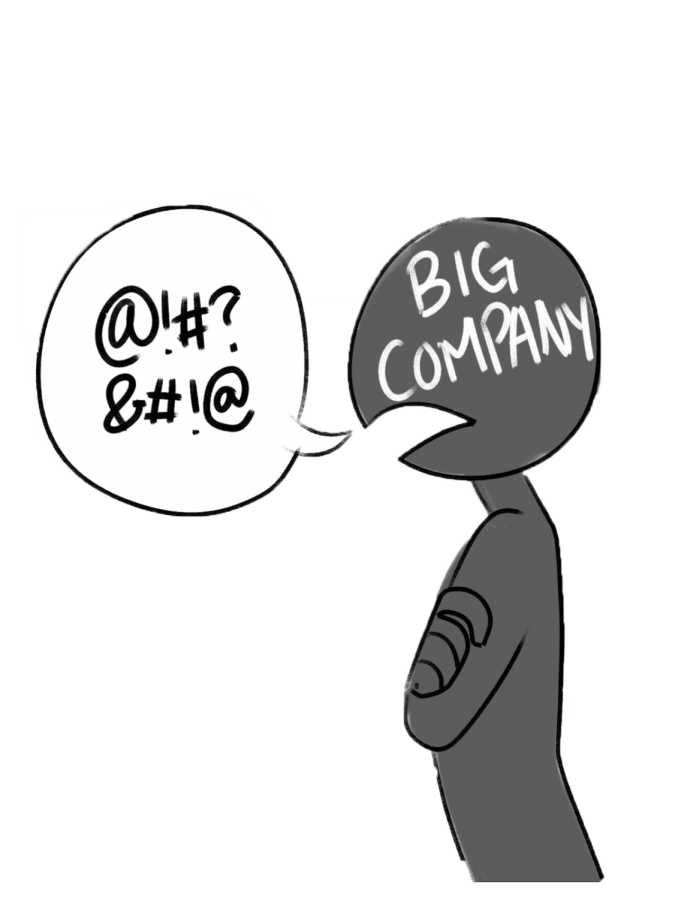When Policy Puts You in Bad Company
April 23, 2019
Over the past few years, companies have increasingly taken a public stance on controversial issues, leading some to call for boycotts against these corporations. While the reasoning might seem sound, these boycotts often end up negatively affecting the company’s workers more than the leadership who’s political and social views are in question. Statistics show that corporate CEOs earned an average of $13.1 million compared to the $37,632 earned by their workers. During boycotts, executives still earn millions of dollars in bonuses while workers may actually be laid off due to the economic impact of sanctions. Therefore, boycotting ends up harming the wrong people.
Maurice Schweitzer, a professor at the Wharton School of Business at the University of Pennsylvania backs this up. He has spoken about the effectiveness of these harmful protests. Schweitzer said, “Boycotts are rarely the precipitating factor for change.”
Let’s look at some specifics. Uber has had multiple scandals involving top executives, such as founder and former CEO Travis Kalanick. He was criticized for his sexist comments, and the toxic work atmosphere in the company. Uber was also accused of capitalizing on the immigration ban in 2017 by surging its prices while taxi drivers went on strike in protest of the ban. Each of these scandals involved Uber executives and managers, not the hard working drivers.
Although Uber has a central leadership, each driver works their own hours which dictates their earnings. Individual drivers don’t necessarily represent the leadership’s political views or morals; they’re just people trying to pay their bills. According to ridester.com, Uber takes a “booking fee” and a “safe ride fee” of $1-$3, varying by city, on top of the 25 percent commission from each driver per ride. In other words, Uber takes an average of 42.75 percent from its drivers. By boycotting the ridesharing service, people aren’t hurting the people who dictate corporate policy, they’re only contributing to the underpayment of employees.
Companies such as Gap, H&M, Nike, and Apple have been accused of using child labor or underpaying their overseas employees who work in less than favorable conditions. One’s first instinct might be to delete the company’s promotional emails and avert their eyes when passing those stores. The initial logic is that by boycotting products with questionable origins, the company will change its policies. However, without a continuous widespread movement, such boycotts affect neither the company’s method of operation nor hurt management’s salaries.
According to Brayden King, a professor of management at Northwestern University, only one in four boycotts gain national media attention. Even the ones that do make it to the national stage tend to affect the wrong people. For example, the news spotlight did fall on the boycott against the Beverly Hills Hotel because the owner, Sultan of Brunei, started implementing strict Sharia law in his country in 2014, putting those in the Brunei LGBTQ+ community at risk. The Sultan is worth over $20 million and the boycott of this one hotel was inconsequential to him. On the other hand, hotel workers relied on guests for their livelihoods. Therefore, each cancelled reservation and event ended up harming regular employees and likely had little effect upon the Sultan’s gubernatorial policies. Even after protests by human rights advocates and celebrities, the Sultan implemented the first out of three phases of Sharia law. Offenses such as pregnancy outside of marriage, not participating in Friday prayers, and celebrating Christmas are now tried in Islamic courts and punished by fines or jail time. The next two phases, which are scheduled to be completed in 2020, will include amputation or execution for offenses such as theft and adultery. While most Westerners frown upon the Sultan’s actions, they have taken no measures to counter the ruler. China, however, has since become Brunei’s largest economic investor, allowing the country to prosper even with the arguable human rights violations. Without harsh and direct legal and economic actions or sanctions by either corporations or political bodies, boycotts alone will not prevent the Sultan from putting the two harsher phases into effect.
Customers should continue using companies which they don’t agree with not only for their convenience, but due to the fact that if they don’t, employees won’t get paid. If they disagree with corporate policy, take real action. One way to do this is to buy company stock and dictate company policy. Corporations are unlikely to listen to those who say they will not be buying their product or using their service. However, they are sure to listen to the voices of their shareholders.




